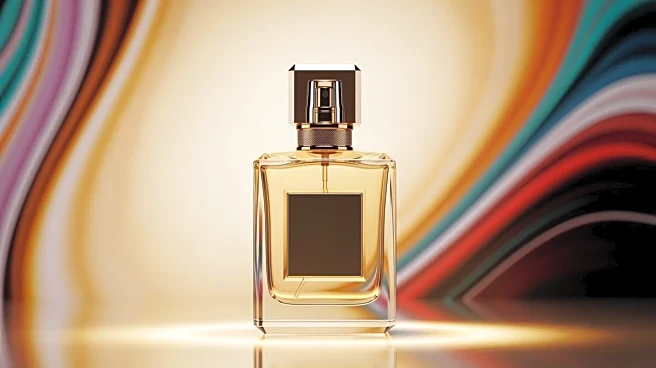What's Happening?
Kering, the owner of Gucci, has agreed to sell its beauty business to L'Oreal for $4.66 billion. The transaction includes Kering's fragrance line Creed and rights to develop products under its fashion
labels Bottega Veneta and Balenciaga. This move is part of Kering's strategy to reduce its net debt, which stood at $10.5 billion as of June, and refocus on its core fashion business. The sale comes amid challenges faced by Kering in reversing declining growth at Gucci, particularly due to slowing demand in the Chinese market. The deal is expected to help Kering streamline its operations and address investor concerns over its financial liabilities.
Why It's Important?
The sale of Kering's beauty unit to L'Oreal represents a significant shift in the luxury group's business strategy. By divesting its beauty operations, Kering aims to reduce its debt burden and concentrate on its fashion brands. This decision is crucial for Kering as it seeks to stabilize its financial position and enhance shareholder value. The transaction also highlights the growing influence of L'Oreal in the beauty industry, as it expands its portfolio with high-end fragrance and fashion products. The deal may impact the competitive dynamics within the luxury and beauty sectors, influencing market strategies and consumer preferences.
What's Next?
Following the sale, Kering is likely to focus on strengthening its fashion brands and addressing the challenges faced by Gucci in key markets. The company may explore new growth opportunities and strategic partnerships to enhance its brand appeal and market presence. L'Oreal, on the other hand, will integrate Kering's beauty assets into its existing operations, potentially leading to new product launches and marketing initiatives. Stakeholders will be watching how both companies leverage this transaction to drive growth and innovation in their respective industries. The impact of this deal on consumer trends and brand positioning will be closely monitored.
Beyond the Headlines
The divestment of Kering's beauty unit raises broader questions about the strategic priorities of luxury conglomerates. As companies navigate economic uncertainties and shifting consumer preferences, the focus on core competencies and financial health becomes increasingly important. The transaction may also reflect a trend towards consolidation in the beauty industry, as major players seek to expand their market share and diversify their offerings. Ethical considerations around corporate restructuring and the impact on employees may emerge as key issues. The long-term implications of this deal for Kering and L'Oreal's business models and industry positioning will be significant.









